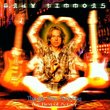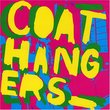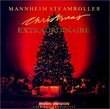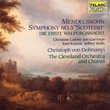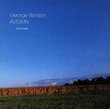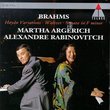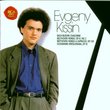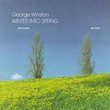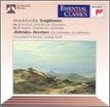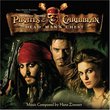| All Artists: Georg Philipp Telemann, Reinhard Goebel, Musica Antiqua Köln Title: Telemann: Sinfonia spirituosa; String Concertos Members Wishing: 0 Total Copies: 0 Label: Archiv Produktion Release Date: 4/9/2002 Genre: Classical Styles: Chamber Music, Forms & Genres, Concertos, Suites, Historical Periods, Baroque (c.1600-1750), Classical (c.1770-1830), Instruments, Strings, Symphonies Number of Discs: 1 SwapaCD Credits: 1 UPC: 028947149224 |
Search - Georg Philipp Telemann, Reinhard Goebel, Musica Antiqua Köln :: Telemann: Sinfonia spirituosa; String Concertos
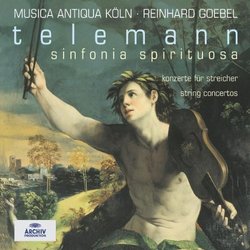 | Georg Philipp Telemann, Reinhard Goebel, Musica Antiqua Köln Telemann: Sinfonia spirituosa; String Concertos Genre: Classical
|
Larger Image |
CD DetailsSimilar CDs
Similarly Requested CDs
|
CD ReviewsIncredible recording!!! D. Gammelgard | Falun, Sweden | 07/26/2002 (5 out of 5 stars) "After hearing the last disc with Telemann String Concertos I was thrilled when I discovered that there would be a second cd with music by Telemann. The group has some new members. The most obvious change is in the continuo with a new cellist and harpsichordist to replace the outstanding Markus Möllenbeck and Christian Rieger. The former star of the group, 1st violinist Florian Deuter is also replaced here by Stephan Schardt AND surprisingly the Maestro himself, Reinhard Goebel who after an arm injury actually has re-learned to play the violin by holding it on the right shoulder instead of the left! I was actually a bit worried after hearing the latest cd "Bachiana" with the new ensemble. When being a fan of MAK you get used to absolute perfection in every sense of the word. Precision and intonation is always impeccable. I would never have reacted or been disturbed if I'd heard the small imperfections in the cd from basically any other ensemble but with MAK you notice! Sometimes the harpsichord is a bit after the beats and Schardt's playing isn't always convincing. Anyway, the new disc completely wipes all doubts away. This recording is a blast!! The sound have never been so big, so symphonic and powerful. The characters of each piece are also very convincing. The continuo playing is absolute top class. So is the solo playing from the violins. There are some amazing pieces to discover here like the concertos for four violins and the suite in D with gamba played by Jaap ter Linden. Some people have a problem to accept and enjoy the, in their ears, extreme approach that MAK has developed during the last ten years. I think the reason is that this way of playing is still unique. Like when "we" started to play baroque instruments and a lot of people were sceptical about it. Let's move on... To play with full sound and to play with a real legato has been taboo in the early music búsiness. It's time for some change! I hope that a lot of people discover this recording and find out how wonderful the music of once neglected composer Telemann can be when played with great passion and sense of style." Engaging performances John Weretka | Melbourne, Australia | 06/20/2002 (5 out of 5 stars) "Telemann's music has been enjoying an amazing resurgence, reminiscent of the renaissance Vivaldi underwent some decades ago. This disc is sure to secure the reputation of a composer much maligned in many musicological circles. The attractive collection of works includes at least three real gems, the Overture TWV55:D6 for viola da gamba and orchestra, the Concerto for four violins and orchestra TWV54:A1 and the Concerto 'Die Relinge' TWV 51:A4 (a recent discovery but recorded elsewhere on at least one other occasion). There are also three concertos for four solo violins, played with rhythmic elan and radiant string sound. There is only one weak work, the Symphony TWVAnh50:1. Musica Antiqua Köln does a superb job, injecting this music with consistent life, energy and elegance and this disc is warmly recommended." NOBODY plays Baroque better .... Giordano Bruno | Wherever I am, I am. | 12/19/2009 (5 out of 5 stars) "... than Reinhard Goebel's 'Musica Antiqua Köln', more stylishly and excitingly, with better intonation and tighter ensemble! I'm fairly sure even Telemann himself rarely had better musicians to conduct. Yet Goebel's brilliance seems to provoke a vendetta among reactionaries against historically informed performance practice, who would rather hear Saint Muffins in the Cow Pasture bellow on modern symphonic instruments at half tempo. Ignore such nonsense! The whole point of such music is entertainment. If you don't like fun, go away!
And where is the fun if not in sheer virtuosity for its own sake? The main course on this CD of 'Table Music' is the 24-minute "Suite in D major for Viola da Gamba, Strings, and Basso Continuo." The virtuoso gambist is Jaap ter Linden, a guest artist with MAK. Pitting the soft timbre of the gamba in concertata with a vigorous chamber orchestra of violins and cellos calls for some compositional virtuosity, also; essentially, the gamba is exposed in cadenza-like passages supported only by the continuo players, and the full ensemble then responds in dance. The contrast works beautifully. It's a little like seeing a gorgeous purple iris amid a field of yellow poppies. The five small concertos for multiple violins are all in major keys, a sure sign that Telemann intended them for pure musical mirth, but there are surprises to be heard, outbursts of wry chromaticism and piquant dissonance. MAK is famed for its daredevil tempos, but these pieces are 'moderato' in every way. Reinhard Goebel suggests that Telemann wrote them as instructional models of the Italian manner for members of German court ensembles. In any case, they are more adventurous than they might sound, with the composer puzzling over the challenges of a concerto of several treble instruments with no or minimal basso. The "Concerto in A major for violino principale, 3 violins, viola and continuo" solves the compositional puzzle most brilliantly, and at the same time, indulges in some hearty musical humor. "Die Relinge" means 'the Toads' in rustic German. Toads don't croak, I hope you know; if they vocalize at all, it's closer to quiet birdsong. Telemann's 'toads' sing in enchantingly irrational chromatics. Actually, I've never heard a performance by MAK that wasn't excellent. Make of that what you will." |

 Track Listings (32) - Disc #1
Track Listings (32) - Disc #1